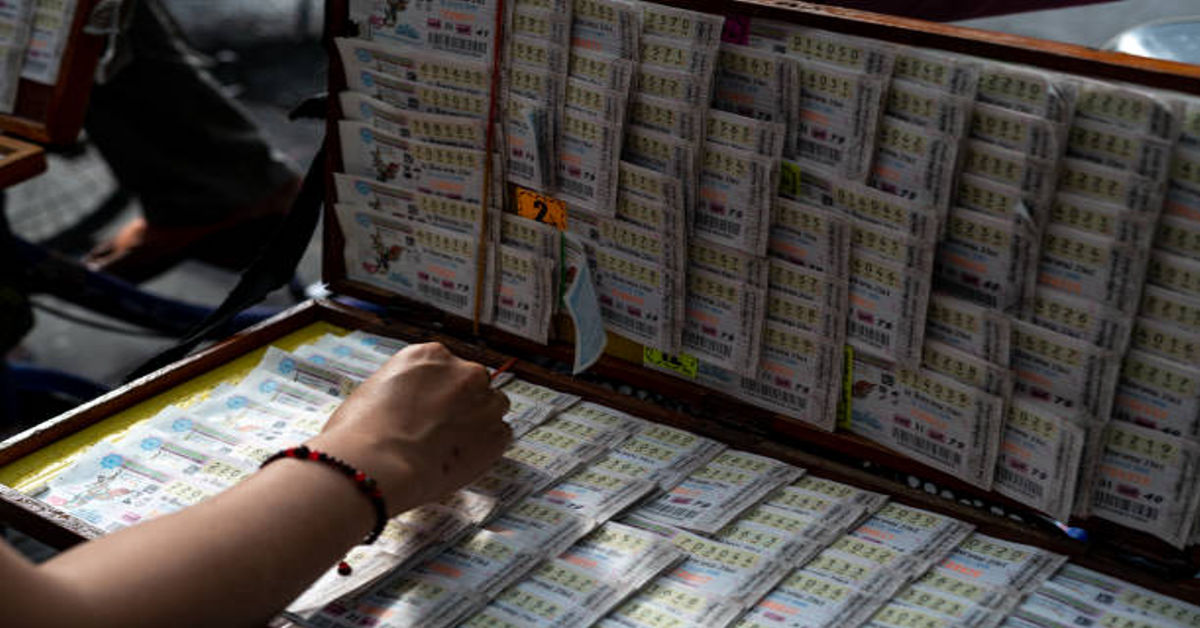Lotology is a unique and surprisingly deep hobby centered around the collecting, studying, and preserving of lottery tickets from different countries, time periods, events, and printing styles. While trading cards, stamps, and coins are widely recognized collectibles, lotology remains a lesser-known niche that appeals to people who enjoy history, graphic design, mathematics, probability, and the cultural significance of lotteries. A lottery ticket might seem like a disposable piece of paper to the average person, but to a lotologist, it is a historical document that reflects government policy, economic conditions, printing technology, marketing strategy, and even cultural shifts in public entertainment across time. A lotology collection can represent decades of artistic trends, price changes, the evolution of gambling laws, and how people used small hopes of winning big to motivate spending and emotional engagement. This makes lotology not just a hobby but a form of historical preservation that turns everyday objects into artifacts of social memory.
Lotology may involve collecting old tickets, modern scratch-offs, digital-era SMS or QR lottery entries, regional chapters of national lotteries, limited editions, tickets with artwork or tie-ins to sporting events, famous winner tickets, and even tickets that never got redeemed. Some collectors focus on a single region, while others aim for worldwide diversity because every country has its own approach to lotteries. The many layers of this hobby make it much richer than just saving bits of lottery paper, and this article explores the history, the skills required, the reasons people get into lotology, methods of cataloging, how to determine collectible value, how to preserve tickets, and how the digital future might change the hobby.
UNDERSTANDING THE ROOTS AND HISTORY OF LOTOLOGY
Lotology emerged organically rather than being founded by a specific organization. People have collected lottery tickets ever since lotteries started becoming mainstream forms of government fundraising and public entertainment. Lotteries existed hundreds of years ago in different forms, but collecting them as a hobby became more popular in the 20th century when mass printing and widespread commercial lotteries allowed people to finally gather a variety of unique ticket specimens.
In many ways, lotology parallels philately (stamp collecting), numismatics (coin collecting), and scripophily (collecting stock certificates). All of these hobbies involve collecting printed financial or gambling instruments that were once meant for practical or disposable use rather than long-term preservation. What distinguishes lotology is its focus on a consumer-oriented industry that is driven by hopes of winning big. Lotteries often reflect eras of economic struggle, consumer optimism, or government-driven fundraising. Lottery tickets became especially common after World War II, when many countries relied on lottery revenue to build public infrastructure. This created a rich field for collectors to source tickets from various decades. Over time, collectors began trading, cataloging, classifying, and publishing price guides, much like in other collecting hobbies.
TYPES OF LOTTERY TICKETS COLLECTED IN LOTOLOGY
Not every collector focuses on the same kind of ticket. Some want the broadest possible assortment, while others prefer a narrow specialization. The table below shows some common categories in lotology:
TABLE 1 – COMMON TYPES OF LOTTERY TICKET COLLECTIONS
Category | Description
Collectors enjoy the diversity of printing styles, security features, artwork, and regional design differences. Some collectors only gather unused tickets, while others prefer used or validated tickets because they reflect the complete life cycle from purchase to draw.
WHY PEOPLE BECOME LOTOLOGISTS – THE APPEAL OF THE HOBBY
Every collector has a reason for pursuing lotology, but several motivations appear consistently. Some collectors are history lovers who see lottery tickets as small records of public behavior, government policy, and consumer spending patterns. Others started saving tickets simply because they liked the designs, colors, typography, mascots, and themed artwork. Many lotologists enjoy the thrill of the hunt—finding limited editions, rare errors, or old tickets that are extremely hard to locate. Some collectors treat lotology as an investment, although the financial value of collection depends heavily on rarity, market demand, and preservation conditions.
The appeal is often emotional. Lottery tickets symbolize hope, risk-taking, dreams of wealth, and a kind of optimism that spans cultures. The psychological connection between consumer dreams and collectible preservation is one of the unique things that sets lotology apart from other collecting fields. For example, a baseball card simply shows a player, but a lottery ticket carries a direct representation of a chance—however small—to radically change someone’s life. That connection adds a dimension of emotional meaning that makes lotology stand out.
THE SKILLS AND KNOWLEDGE A LOTOLOGIST NEEDS
Someone beginning lotology quickly learns that the hobby requires several practical skills. A collector must know how to store paper safely, identify fakes or reprints, analyze production history, recognize security features, negotiate trades, and understand what gives a ticket collectible value. Some of the skills involved include:
- Historical knowledge – understanding when lotteries began in specific countries and how printing techniques changed over time.
- Paper conservation skills – since tickets can fade or deteriorate without proper storage.
- Cataloging and record-keeping – establishing a system to track ticket origins, edition numbers, print date, and condition.
- Market awareness – knowing how to estimate fair value.
- Attention to detail – identifying rare variations like misprints, low production runs, or special serial number patterns.
- Trade negotiation skills – networking with other collectors to grow a collection without overpaying.
Lotologists may also study statistics and probability out of personal interest, though not for predicting outcomes but to analyze how lotteries are designed. Understanding the mathematics of chance adds depth to appreciating lottery structures and prize schemes.
HOW LOTOLOGISTS ORGANIZE AND CATALOG THEIR COLLECTIONS
A major part of the hobby is cataloging tickets in clear and logical ways. The method varies by collector, but common classification systems include:
- Country and region
- Year or decade
- Lottery brand
- Type of ticket (scratch-off, draw, event edition, etc.)
- Theme
- Serial number or edition number
- Printing elements (inks, holograms, security elements)
Collectors often create personal catalogs in spreadsheets, binders, or digital databases. Many advanced collectors photograph or scan each ticket to preserve high-resolution images in case the physical ticket fades over time. In professional collections, each ticket may have an associated identification code, acquisition history, current condition grade, and notes about rarity.
TABLE 2 – EXAMPLE OF A LOTOLOGY CATALOG ENTRY FORMAT
Field | Example Entry
Such documentation not only helps organization but adds value when trading or selling a collection, since proper records prove authenticity and condition history.
DETERMINING THE VALUE OF LOTTERY TICKETS IN A COLLECTION
Unlike coins or stamps that have established global marketplaces, lotology pricing is more fluid. Values are often based on rarity, demand, condition, and historical relevance. A basic pricing logic framework can be understood through the following factors:
- Age – older tickets are typically more valuable because fewer survive in excellent condition.
- Print volume – limited releases are worth more since fewer exist.
- Theme popularity – tickets with pop culture tie-ins or national events can be highly sought after.
- Condition – collectors generally want crisp, untorn, uncreased tickets with original color vibrancy.
- Historical importance – for example, the first ticket issued by a country’s national lottery may be considered priceless to a collector.
- Printing errors – misprints, inverted text, missing graphics, or duplicated serial numbers often increase value for collectors who appreciate rarity.
- Fame of the prize outcome – if a ticket type was associated with a record-breaking jackpot, it can have elevated appeal, even if the specific ticket was not a winner.
TABLE 3 – BASIC VALUE FACTORS FOR LOTTERY TICKETS
Factor | How It Affects Value
Because pricing is subjective, many collectors agree that the value of a ticket ultimately depends on what another collector is willing to pay. This makes the trading community essential to the hobby.
WHERE LOTOLOGISTS FIND TICKETS
Collectors acquire tickets in many ways. Some buy current tickets and save them immediately, especially limited-edition scratch-offs. Others dig deeper by searching through estate sales, flea markets, old storage lockers, antique shops, or community auctions. Some collectors inherit ticket stashes from relatives who played frequently but never intended to be collectors. Online marketplaces and collector forums are modern sources, though many rare early tickets might never appear publicly because collectors hold onto them tightly.
Additionally, some dedicated lotologists correspond with collectors in other countries to exchange modern or historical tickets, which adds international diversity to collections that would otherwise remain local.
HOW TO STORE AND PRESERVE LOTTERY TICKETS
Preservation is essential in lotology because tickets are made from paper or thin cardboard that degrade easily when exposed to air, humidity, light, skin oils, or poor handling. A serious collector often treats lottery tickets with the same care given to valuable historical documents. Good preservation methods include:
- Acid-free storage sleeves
- Archival binders or boxes
- Silica gel in storage areas to control humidity
- Use of cotton gloves when handling rare tickets
- Avoiding direct sunlight or fluorescent exposure
- Temperature regulation to prevent brittleness
Collectors also avoid taping or gluing tickets, because adhesives may damage the paper and reduce value over time. Advanced collectors may use archival-quality plastic made of polypropylene or polyester, which ensures safety and long-term clarity.
Some collectors even frame certain key tickets for display. In such cases, UV protective glass is essential to prevent fading. However, most collectors keep displays limited because long-term light exposure is risky.
COMMUNITY AND SOCIAL ASPECTS OF LOTOLOGY
A hobby becomes richer when shared, and lotology is no exception. Many collectors enjoy trading stories, comparing finds, and participating in clubs or online groups where rare tickets are posted and discussed. Some hobbyists publish personal guides, host exhibitions, or write about the cultural history of lotteries. In doing so, lotology becomes not just a private activity but a shared academic and social field.
Collectors may also use events to connect with fellow lotologists, including:
- Local collector conventions
- Antique fairs
- Online forums and digital trading groups
- Private collector clubs
- Auction houses specializing in printed financial documents
For some participants, the community becomes as meaningful as the tickets themselves. Sharing experiences, identifying new variants, discovering rare editions, and teaching newcomers the history of different national lotteries adds dimension to the hobby.
THE CULTURAL AND PSYCHOLOGICAL SIGNIFICANCE OF LOTTERY TICKETS
Lottery tickets are emotional artifacts. They represent a universal experience of hope and uncertainty. When someone buys a lottery ticket, they are often imagining a life-changing scenario: winning enough money to retire, buy a home, travel, or achieve dreams otherwise out of reach. This emotional component gives lotology a cultural richness that transcends simple collecting. Tickets capture the dreams of millions, even if they never came true, making lotology a way of preserving the psychology of chance.
The evolution of lottery marketing also reflects broader cultural changes—how governments communicate with citizens, how economic stress drives gambling participation, how advertising trends shift, and how public perception of gambling evolves. For example, cheerful mascot designs may reflect eras of optimism, while minimalistic designs might represent changing printing priorities or cost-cutting. Collectors who analyze ticket design study typography, ink choices, printing techniques, and government branding strategies, all of which deepen their understanding of how societies change over time.
THE FUTURE OF LOTOLOGY – DIGITAL TRANSFORMATION
A major question facing lotology is how digital technology will influence the hobby. Many lotteries have shifted to online purchases, QR code entries, mobile app registrations, and automated number draws without physical tickets. New-generation players may never hold a printed ticket at all. This raises several challenges:
- Will fewer printed tickets lead to long-term scarcity, increasing the value of existing physical tickets?
- Will digital lottery receipts become collectibles in their own right?
- How will collectors preserve digital-only tickets?
It is reasonable to expect that physical tickets from the late 20th and early 21st century may become extremely valuable in future decades because they represent the last era of mass-printed lottery documents. Digital tickets may still be collectible, but the methods of archiving them will differ. Instead of binders and plastic sleeves, collectors may maintain:
- Encrypted drive backups
- Blockchain-style proof of ownership
- Screenshots of receipts
- Digital storage with time-stamped verification
Even so, the tangible experience of holding a real ticket—feeling the paper, seeing the printing detail, appreciating the artwork—may always make physical lotology more appealing to collectors.
COMPARISON OF LOTOLOGY WITH OTHER COLLECTING HOBBIES
Lotology shares similarities with other collecting hobbies but also has distinct differences. The comparison below highlights core points:
TABLE 4 – COMPARISON WITH OTHER COLLECTIBLES
Collectible Hobby | Similarities | Differences
This table shows that lotology is a hybrid hobby—part historical preservation and part cultural anthropology, with touches of graphic design study and personal nostalgia.
WHY LOTOLOGY DESERVES MORE RECOGNITION
Lotology is not mainstream, but it offers meaningful benefits:
- It preserves everyday history that would otherwise disappear.
- It gives insight into national economic and cultural evolution.
- It supports long-term education in printing methods and document design.
- It provides emotional satisfaction and mental engagement.
- It brings together collectors through a shared and unusual passion.
As people increasingly embrace hobbies that tell stories about the past, lotology may gain broader public interest.
CONCLUSION
Lotology is a rich and meaningful hobby that transforms simple disposable lottery tickets into preserved cultural artifacts. These small printed documents may appear ordinary to outsiders, but to collectors they represent history, hope, probability, technological evolution, and the deeply human desire for possibility. Unlike many hobbies that revolve around luxury objects, lotology centers around everyday history that most people throw away. This makes it a powerful testament to the idea that historical documents do not need to be expensive to carry deep meaning. As technology evolves and paper tickets become less common, today’s collectors serve an important role in preserving a disappearing form of cultural expression. For those who enjoy history, design, public psychology, and the quiet pleasure of discovering unexpected artifacts, lotology remains a rewarding and endlessly fascinating pursuit.
FIVE FREQUENTLY ASKED QUESTIONS ABOUT LOTOLOGY
- What is lotology?
Lotology is the hobby and study of collecting and preserving lottery tickets from different regions, time periods, and printing styles. - Is lotology an expensive hobby to start?
No. Many people begin by saving new or inexpensive tickets, gradually expanding their collection over time. Rare specimens can be costly, but a beginner can start with minimal spending. - How do collectors preserve lottery tickets?
Collectors store them in acid-free archival sleeves and binders, keep them away from light and humidity, and handle them gently to prevent damage. - Are old lottery tickets valuable?
They can be. Value depends on rarity, historical importance, condition, print volume, and collector demand. Some rare or limited tickets can be highly prized. - Will digital lottery systems end lotology?
No. Physical tickets may become rarer and more valuable, and collectors may find ways to archive digital receipts in new formats, keeping the hobby alive in a different form.















